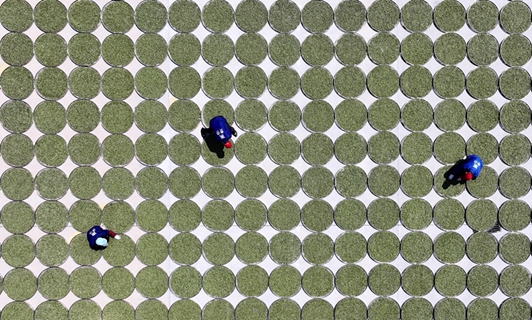Fuding White Tea Culture System added to key UN agricultural list

The method behind making Fuding white tea has a long history in Fujian province. [Photo/IC]
The Food and Agriculture Organization of the United Nations, formally recognized three traditional Chinese farming systems as Globally Important Agricultural Heritage Systems (GIAHS) on May 19, including the Fuding White Tea Culture System, in Fuding county, Ningde city, East China's Fujian province.
FAO-rated GIAHS are traditional agricultural systems with significant historical, cultural and ecological value, offering insights for modern sustainable farming.
Effective conservation of these systems is said to help preserve biodiversity, promote cultural heritage and boost rural economies and sustainable agricultural development. What's more, rural vitalization can be promoted. China now boasts 25 GIAHS sites, reaffirming its global leadership in preserving such vital agricultural heritage.
The Fuding White Tea Culture System benefits from a unique blend of geography, climate and centuries-old tea-growing traditions. The system harmoniously integrates ecological wisdom and artisanal craftsmanship, with a focus on the revered Lyuxueya mother tree and natural withering techniques.
By intertwining tea gardens with forests and crops, the system not only sustains biodiversity but also supports local livelihoods, enriching the world's tea genetic resources. Moreover, its eco-friendly tea cultivation model is said to serve as a beacon for efficient resource utilization, particularly in mountainous agroecological settings.
The enduring conservation efforts of Fuding's communities are viewed as offering invaluable insights for safeguarding global agricultural heritage.
Overall, the recognition is said to underscore the system's role in promoting biodiversity conservation, cultural heritage preservation and rural economic development.




